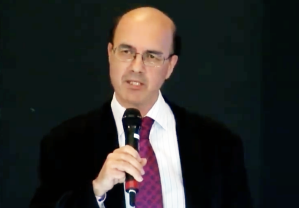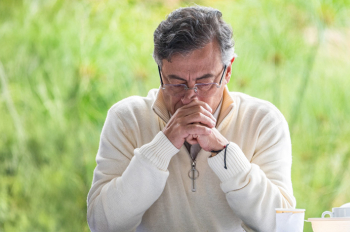
The Spanish Evangelical Alliance (AEE) has outlined a series of reforms it hopes the World Evangelical Alliance (WEA) will adopt, urging decentralization, greater accountability, and a stronger role for national alliances in shaping decisions.
The proposals come ahead of the WEA’s General Assembly in Seoul, South Korea, scheduled for Oct. 27–31, the first in-person gathering since 2019. The WEA brings together national and regional bodies representing an estimated 600 million evangelical Christians worldwide.
In an interview with Evangelical Focus, AEE general secretary Dr. Xesús Manuel Suárez said the WEA would be “stronger in its mission” if it were characterized by more internal democracy and closer ties between its leadership and grassroots members. “We must therefore return to decentralisation of government, checks and balances, frequent renewal of positions, frequent and detailed accountability, reduction of the distance between governing bodies and those they represent,” he said.
Suárez emphasized that national alliances are not peripheral members but the very foundation of the WEA. “Between one General Assembly and the next, the National Alliances are silent guests in the decision-making bodies of the WEA,” he said. “This is worrying, because the IC [International Council] should not be a body that is given the keys and opens and closes everything according to its own decisions, but rather the body that represents the General Assembly of members between one General Assembly and the next, and in order to represent it, it must listen regularly to its members and report to them frequently.”
The AEE proposals include electing the WEA general secretary directly by the General Assembly and requiring the officeholder to present a report at each gathering. Suárez also called for members of the International Council to be appointed by regional alliances, to inform national alliances of its work regularly, and to convey national proposals upward.
The AEE further suggested that General Assemblies be held more frequently, with online sessions in between to reduce long gaps in decision-making, and that translation into major world languages be guaranteed for global meetings. Practical measures to improve communication, such as sharing contact details of national representatives, were also recommended.
The AEE’s concern centers on how authority is exercised. Suárez said the International Council currently has “enormous decision-making power” but limited authority in biblical terms.
“First, to give the IC more authority, and that authority is not developed by increasing power, but by placing oneself below, in the terms of Matthew 20:24-28,” he explained. “When it places itself above, listens little, and decides on its own, it can be very effective and have a lot of power, but it has little authority. When one exercises authority in biblical terms, one puts oneself below, asks questions, listens, and is accountable, thereby gaining authority. We want to give the IC more authority.”
The Spanish Alliance stressed that its critique was not meant to be divisive but constructive. “We do not want to tear down, but to build up,” Suárez said. He added that the AEE’s proposals seek to return the WEA to its identity as a meeting of peers, built on mutual respect and responsibility.
The AEE also welcomed the profile of new WEA general secretary Botrus Mansour, describing him as someone able to bridge communities and listen to diverse perspectives. At the same time, it urged that the WEA’s relationship with the Catholic Church remain limited to cooperation on practical issues such as defending persecuted Christians and protecting freedom of conscience, rather than becoming a source of theological division within the evangelical movement.
Suárez concluded that a renewed culture of participation and accountability could unlock the WEA’s potential. “We want the National Alliances to regain a sense of ownership and responsibility, and to do so we need to establish mechanisms that facilitate their active participation and improve their feedback to the IC,” he said.
Read the full interview here.






